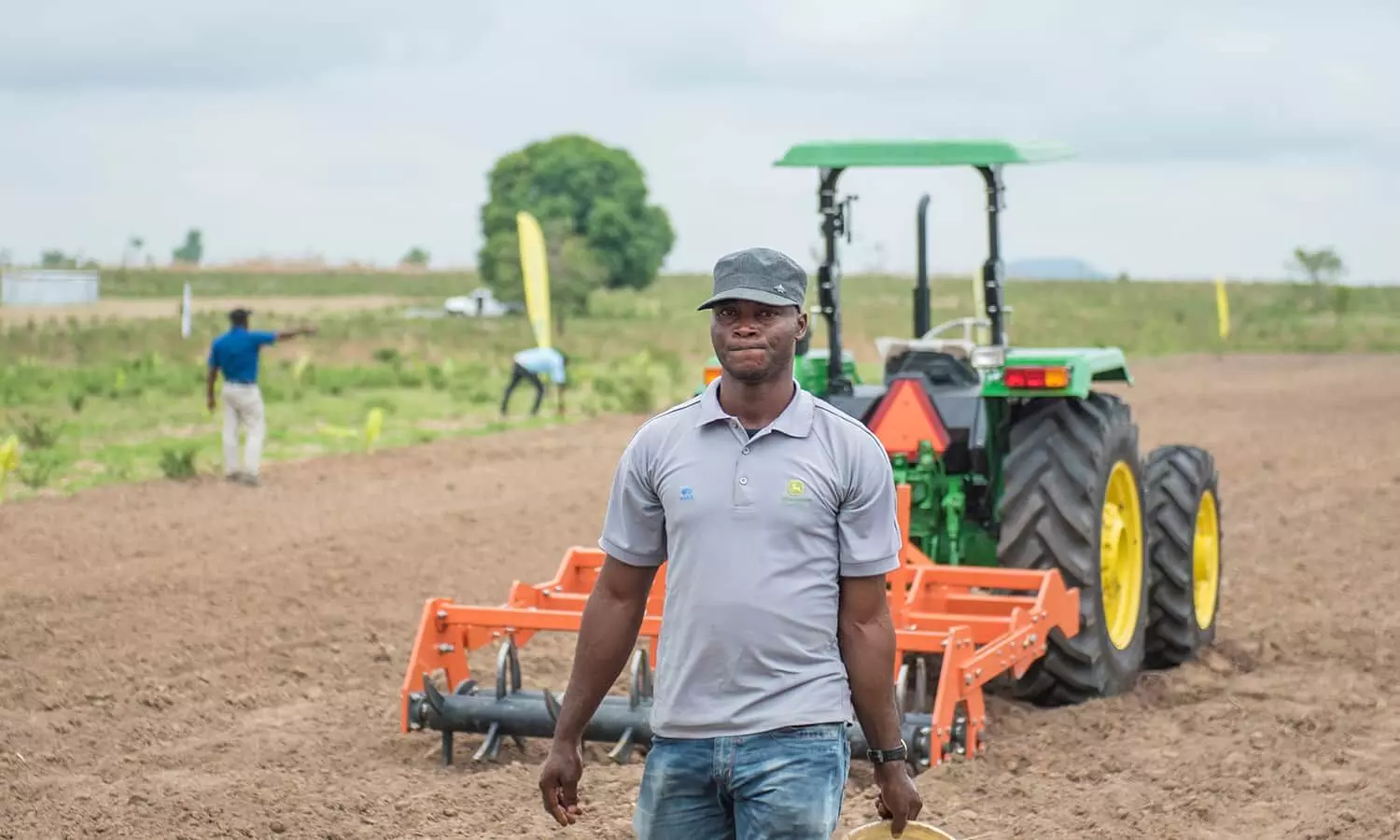- Home
- /
- Trending-News
- /
- Nigeria needs 700,000...
Nigeria needs 700,000 tractors to improve mechanisation – says Organisation

The Chief Operation Officer, Hello Tractor, Mr Folu Okunade, says Nigeria alone needs more than 700,000 tractors for the cultivable land available in the country.
Okunade, who said this during the launch of Hello Tractor’s mechanisation hub in partnership with Heifer International on Thursday in Gwako, Gwagwalada, Abuja, said that the tractors would solve the problem of mechanisation.
He said that many countries, including Nigeria, had the need for mechanisation, adding that partners were needed to bridge the gap.
“We need to find a way to aggregate this demand; farmers do not need to own a tractor, he said.
According to him, the hub is the second in Nigeria and the fifth in Africa.
He said that Hello Tractor started in Nigeria in 2014 and is presently in five countries across Africa, including Kenya and Rwanda.
“Hello tractor started in 2014 in Nigeria. We are now in five countries, and our technology has been used across 18 countries in Africa.
“So far we have invited more than a million farmers, and we have mechanised more than three million hectares of land across Africa, and we continue to do more.
“This hub is really where people can see us, meet us, get demonstrations of what we do, and really adopt the mechanisation services that we are providing,” he said.
He said that Hello Tractor in the next five years hoped to expand beyond those five countries where they are currently.
“We expect our team to be in every single county in Africa, so people can have the ability to access mechanisation even without owning a tractor.
“We expect to impact over five million farmers because we will continue to double and triple every year,” he said.
Dr. Lekan Tobe, Country Director, Heifer International Nigeria, said that considering the landscape of Nigeria, the country was not yet where it ought to be in terms of the number of tractors per square kilometre of farm.
Tobe said that the issue was not about buying tractors, but the maintenance should be considered, adding that tractors are heavy-duty machines that could break down from time to time.
“It is not that we cannot afford to buy tractors, but tractors should have a whole package: maintenance, deployment, and access. All those things should be embedded in the package.
“I know we are not doing well in terms of maintaining our tractors. The one we have been buying does not last.
“Two years, three years, they are parked just because of small spare parts that are broken in the machine,” he said.
He said that food security could be impacted with the number of tractors, adding that the primary work of a tractor was to help till the land and increase productivity.
Tobe said that they also train farmers on conservation agriculture so that they are less dependent on tractors.
The Director, Mechanisation, Federal Ministry of Agriculture and Food Security, Sule Mageed, said that Nigeria needed innovative solutions to increase agricultural productivity.
Represented by the Deputy Director, Engineering and Mechanisation, John Drai, Mageed said that all over the world, agricultural production was being upscaled through the use of mechanisation and innovation.
“Achieving food security through mechanised agriculture and technology involves leveraging innovative solutions to increase agricultural productivity, efficiency, and sustainability.
“Our agricultural system is presently saddled with numerous challenges, and the need to overcome these challenges through mechanisation hubs and cutting-edge agricultural technology innovation cannot be overemphasised,” he said.
He said that the president, in order to boost agricultural production and to have food sufficiency in the country through the ministry, procured 4,000 units of tractors.
According to him, this is to add to what the private sectors are doing to mechanise our agricultural system.
He said that to achieve the desired food self-sufficiency in the country, there was a need for the ministry to collaborate with the private sector, like Hello Tractor.
Mageed said that embracing mechanised agriculture and technology would help address the pressing challenge of food security, ensuring a sustainable food future for generations to come.



